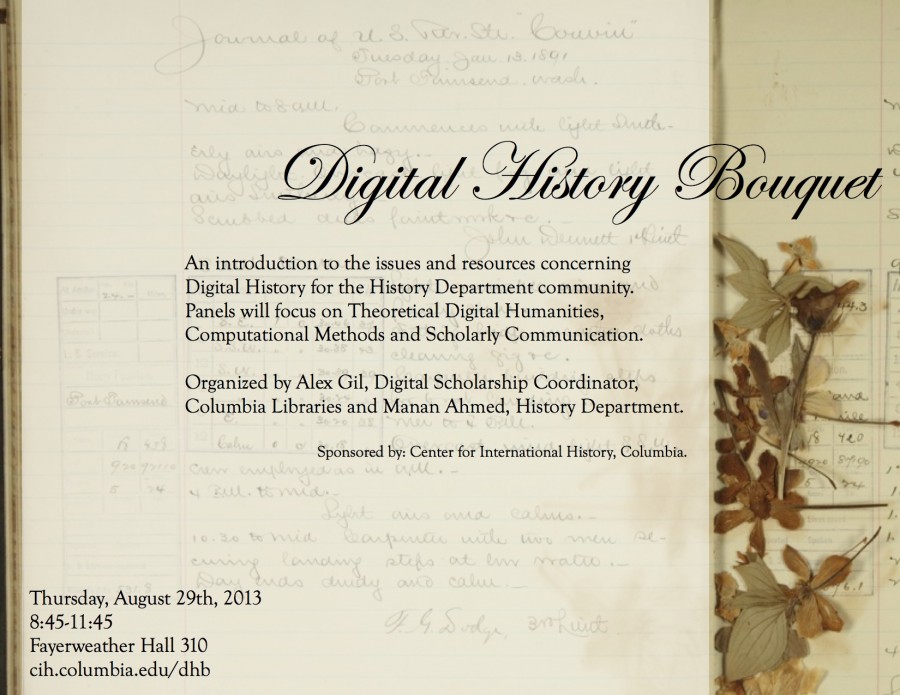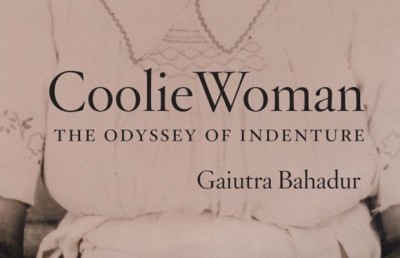
Introduction
The CU Digital History Bouquet is an half-day event geared towards incoming graduate students of the History Department, though open to all its graduate students and faculty. The goal of the event is to introduce students to the digital dispensation in the profession. The event will take place at Fayerweather 310 on August 29, from 8:45am to 11:45am, including coffee. The program is divided into three tracks: scholarly communications, computational methods and theoretical digital humanities. Each of the tracks begins with an overview of the larger issues and ends with a review of local resources available to Columbia graduate students in each of the tracks. We will also make available a page with many resources for each of these panels.
8:45-9:00
Coffee & Kuchen
9:00-10:00
Computational Methods
Issues
• research methodology vs. tools
• research management and personal archiving: Zotero
• search and discovery: Harnessing Google
• Big Data and API’s
• exhibits, archives: Omeka
• mapping technology: Spatial Humanities
• text analysis: Bamboo Project, TaPoR, ChartEx, PoemViewer, Google N-gram Data
Some useful links:
ProfHacker, GradHacker, DHNow
Local Resources
• studio@butler
• Digital Humanities Center
• NYC-DH
• CLIO
10:00-11:00
Scholarly communications
Issues
• AHA statement on dissertations
• publication genres: SHERPA/RoMEO, Scalar, Creative Commons,
• social media:
• online presence: WordPress
• White House mandate on open access
• peer review experiments
• public history
Local Resources
• CDRS: Center for Digital Research and Scholarship, Columbia.
• Academic Commons
• Digital Humanities Center
• Center for International History
11:00-11:45
Theoretical Digital Humanities
Issues
• Significance of DH
• DH as a Critique Alexis Lothian and Amanda Phillips, “Can Digital Humanities Mean Transformative Critique?” Journal of E-Media Studies. Vol. 3 Issue 1. 2013.
• Code Speak
• Critical Code Studies
• DH Poco
• Programming Historian, Code Academy
Local Resources:
Classes
CDML

